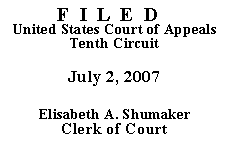

| UNITED STATES OF AMERICA,
Plaintiff-Appellee, v. JAMIE FRIAS-FERNANDEZ, Defendant-Appellant. |
|
Under Hahn, we consider "(1) whether the disputed appeal falls within the scope of the waiver of appellate rights; (2) whether the defendant knowingly and voluntarily waived his appellate rights; and (3) whether enforcing the waiver would result in a miscarriage of justice." Id. at 1325. The miscarriage-of-justice prong requires the defendant to show (a) his sentence relied on an impermissible factor such as race; (b) ineffective assistance of counsel in connection with the negotiation of the appeal waiver rendered the waiver invalid; (c) his sentence exceeded the statutory maximum; or (d) his appeal waiver is otherwise unlawful. Id. at 1327. Defendant does not dispute that his plea, along with his waiver of appeal rights, was knowingly and voluntarily entered or that his appeal falls within the terms of the appeal waiver he accepted.
Defendant first contends that the government's motion to enforce the appeal waiver was untimely filed under 10th Cir. R. 27.2(A)(3), which provides that "[i]f possible," such motions "must be filed within 15 days after the notice of appeal is filed." The cited rule also allows for late filing "upon a showing of good cause," and, upon review of the government's motion and its reply to defendant's response, we conclude that cause has been shown for the delayed filing here.
Defendant next contends that a miscarriage of justice will occur if this appeal is dismissed because the fast-track plea agreement he entered denied him his right to allocution. This claim is factually without merit. It is clear from the record that the district court permitted defendant to speak at his sentencing hearing to mitigate the sentence. See Mot. to Enforce, Attach. C at 2-4. Thus, defendant was not denied his right of allocution. See Fed. R. Crim. P. 32(i)(4)(A)(ii).
The government's motion is GRANTED and the appeal is DISMISSED. The mandate shall issue forthwith.
ENTERED FOR THE COURT
PER CURIAM
*. This panel has determined unanimously that oral argument would not materially assist the determination of this appeal. See Fed. R. App. P. 34(a)(2); 10th Cir. R. 34.1(G). The case is therefore ordered submitted without oral argument. This order and judgment is not binding precedent, except under the doctrines of law of the case, res judicata, and collateral estoppel. It may be cited, however, for its persuasive value consistent with Fed. R. App. P. 32.1 and 10th Cir. R. 32.1.